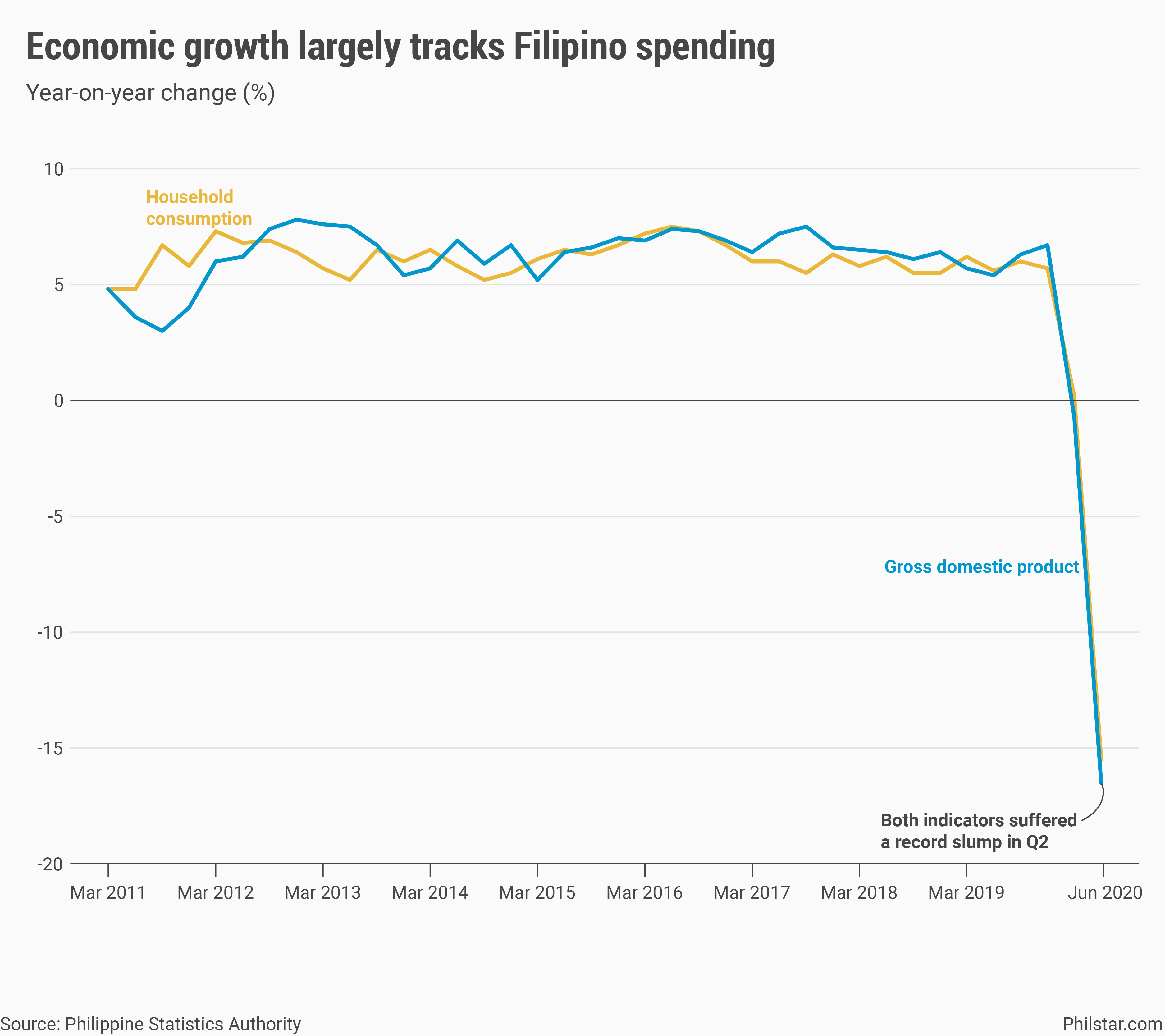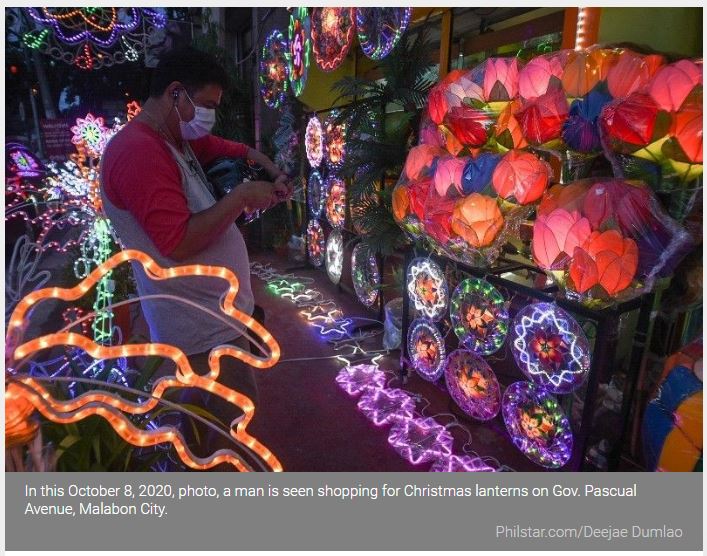Shelved parties bring no good tidings for Filipinos’ Christmas
MANILA, Philippines — Karl Benson Molina from Rizal would typically look forward to the start of “ber” months as this also means work. A full-time talent development manager that earns on the sidelines as events host, Molina said this year is different, no thanks to the pandemic.
“Usually as soon as September arrives, I would get inquiries on my services for weddings, corporate events and Christmas parties,” Molina, 31, said in an interview. “No one has reached out yet and I am sensing that it would be the case for the rest of the quarter.”
Coronavirus is proving to be the Grinch of this year’s Christmas, and the impact can never be more obvious in the Philippines where large family and corporate gatherings typically mark the world’s longest holiday season.
A ban on mass gatherings of more than 10 people is killing plans for Christmas parties and leaving an entire industry employing around 402,000 people with no reason to celebrate. “Live events pre-COVID-19 would usually rake in an estimate of P1.5 billion into the country’s GDP (gross domestic product) during holiday season,” said Shakira Villa Symes, lead convenor of the National Live Events Coalition.
“The highest grossing events are corporate year-ender events from telecom firms and call center companies, she said in an e-mailed response to queries.
So far, the industry group, formed at the height of lockdowns in March to assist members, has seen 97 local firms close shop because of a consequential drop in bookings for weddings, concerts, and even fashion shows. Revenue losses this year have reached a staggering P133.1 billion and a bleak Christmas is not making things look merry.
Virtual celebrations may become the norm, but the moderated scale of such occasions meant earnings unlikely to make up for revenues from traditional live gatherings. “At the moment, 35% of live events industry has been staying afloat via virtual and multiplatform events…,” Symes said.
“The remaining 65% is the considerable drop in the industry hitting the performance arts and theater sector as well as the concerts and musical events sector,” she added.
Beyond the industry, the consequences can be severe. The lack of big holiday events would mean tempered sales on everything from food to gifts that typically come with large gatherings. Jollibee Foods Corp., the homegrown fast-food brand catering to these events, is hopeful benefits from digital shift will “carry over” to Christmas and help offset its P19-billion in net losses as of June.
Similarly, the broader economy is likely to take a hit. Consumer spending, which accounts for 70% of economic output annually, slumped a record 15.5% year-on-year in second quarter, bringing with it confidence that suffered a historic low. There are no holiday bonuses for most companies, while a drop in overseas remittances would ultimately temper families’ purchasing power.

“I believe Christmas celebration for both businesses and organizations will be a lot toned down,” George Barcelon, president emeritus of the Philippine Chamber of Commerce and Industry, the country’s largest business group, said in a phone interview.
Acting Socioeconomic Planning Secretary Karl Kendrick Chua is similarly uncertain of a holiday boom this year. “Consumer outlook depends on how the economy will perform, and this depends on how open the economy can be,” he said in a Viber message.
But people like Molina are expecting the worst. “I think that because of our government’s poor response to the pandemic, the events industry will remain to be affected in the next few quarters,” he said.
“Things aren’t going back to normal,” Molina said.
Source: https://www.philstar.com/business/2020/10/08/2047844/shelved-parties-bring-no-good-tidings-filipinos-christmas


 English
English




